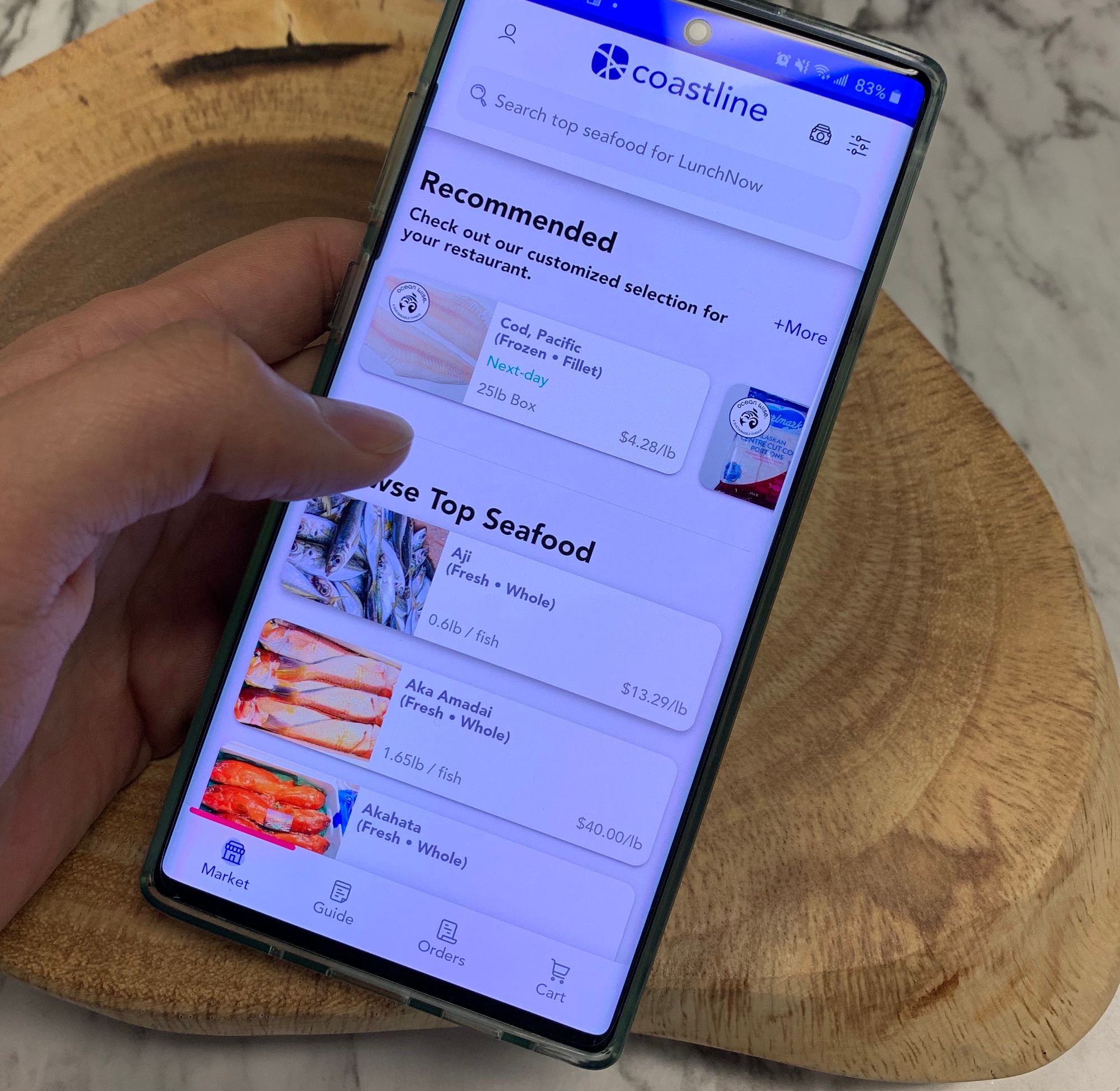Reposted from original post on Medium.
Despite being a nascent vertical compared to traditional, consumer-oriented e-commerce, it’s undeniable that the B2B (business to business) sector has seen explosive growth in 2021.
In fact, B2B e-commerce is one of the fastest growing segments across all types of commerce. And there’s no surprise why this is the case.
Setting up online B2B operations can be a game changer — helping businesses automate labor-intensive tasks, unlock massive amounts of previously uncaptured data, and unlock new levers to scale.
But oddly enough, the industries that need these benefits the most —verticals like food distribution, agriculture, or trucking — have been notorious laggards when it comes to adoption.
But this is quickly shifting. I witnessed the first signs at my past company, Coastline (B2B marketplace for seafood), where we helped seafood suppliers and chefs automate a dizzying array of complex processes. Before Coastline, restaurant chefs were texting, faxing, or phoning in their orders — often in the wee hours of the morning.
Meanwhile, supply reps were staying spending the majority of their time trying to decipher late night voice mails or texts — while often punching in wrong details into their ERP, accounting system, or worse yet — on Excel.
And COVID only served to pour gas on this fire. Now, at the back half of 2021 — I can confidently say now is the right time for local businesses to adopt B2B e-commerce as a core business strategy. The suppliers that do so will increasing win market share in their local markets. Why? Here are five reasons:
1/ Rising costs of manual processes

Whether it’s cost of goods sold or staff wages — it’s undeniable that it’s getting more expensive to operate your business each year. Hence, it’s becoming apparent that efficiency, streamlining, and automation of costly manual processes will be keys to unlocking profitability.
A specialized B2B platform allows local businesses — farmers, butchers, or wholesalers — to do just this — where they can partially or fully automate:
- Making and receiving orders (which is prone to human error)
- Enforcing ordering lead times, cutoffs, minimums
- Delivery zone boundaries, time windows, and availability
- Streamlined picking and packing sheets
- Order tracking and invoicing
- Inventory management and syncing across retail, consumer, and wholesale business lines
I’ve experienced these benefits first-hand when my last startup leveraged B2B commerce & operations to outperform industry benchmarks for revenue growth, accounts per rep, and picking/packing by 150% +. As a result, we quickly scaled to millions in revenue per year, despite a dramatically smaller staff count vs. comparable distributors.
2/ Unlocking data & insights
Digitizing your wholesale operations can not only increase profitability, but unlock a goldmine of actionable insights.
Across the flow of supply chain ➡ purchasing funnel ➡ warehouse operations ➡ delivery, B2B can help unlock previously unkept insights like:
- Predictive ordering: How should I adjust my purchase orders or inventory based on market insights? (based on weather, future orders, historical trends)
- Customer data: Who are my top customers in the last year? Last two weeks? When is the best time to send text order reminders? Which products are the most effective for upsells? Which clients are at the risk of churning, based on ordering patterns?
- Operations accuracy: What is the current picking and packing accuracy of my warehouse staff? What % of on-time deliveries am I hitting?
As the world continues to digitize, data will be a key enabler to future-proofing your business.
3/ Changing customer preferences

As a cohort of fiercely analog buyers (especially in food!) graduate out of purchasing roles, younger buyers are expecting convenient, real-time purchase experiences — being able to get the info they need, at the prices they expect, ordered when they need it.
Companies like Choco & Rekki are taking the first steps to making this a reality (in food) — though under an amalgamated marketplace of suppliers under a singular marketplace brand and interface.
For suppliers looking to maintain control over their unique relationships and brand, launching a white-labelled B2B platform is the best solution. Platforms like Freshline allow both wholesale purchasers and suppliers to benefit from convenience, real-time availability/pricing, and automation — while keeping the supplier’s unique relationships, identity, and brand intact.
4/ Maximizing customer reach
In traditional offline commerce (i.e. food distribution), there’s often a cap on how many accounts each sales rep can take on. This is often due to time-consuming manual processes and arduous tasks — things that prevent staff from doing what they do best — selling quality products.
B2B e-commerce is a fantastic gateway to unblocking sales teams from flourishing. For example, creating a wholesale storefront enables:
- More accounts managed per sales rep: reps can focus efforts on relationship building and planning, rather than deciphering phone/text/voicemail orders.
- New prospects and top-of-funnel: a B2B storefront serves double duty as a gateway for your products, services, and story. Very few analog business websites have information beyond basic necessities.
- Unlocking growth in existing customers: expanded reach isn’t limited to just new customers. B2B enables time-promotions and features to incentivize larger, more frequent orders from existing clientele.
5/ New partnerships and integrations

Last but not least — when you adopt a B2B platform, you not only benefit from the core product — but rather from an entire community of services, apps, and integrations that come along with it.
For example, Freshline’s App Store includes easy-to-use marketing tools like Mailchimp and Drift, making fresh sheets, promotions, and customer service a breeze. Other fantastic B2B integrations/apps include:
- Resolve (allows b2b manufacturers & wholesalers to get paid upfront — while their business customers can pay in net terms)
- Routific (optimized routes for last-mile deliveries)
- HighRadius (automated customer credit applications)
A specialized B2B platform unlocks business partnerships like these and many more — providing access to an ever-growing community of power-ups.
Interested in seeing how you can leverage B2B e-commerce to grow your businesses? Sign up for a demo and see how you can streamline your business, leverage new data insights, and maximize growth.
Joseph Lee, Co-founder, Freshline 🥦




